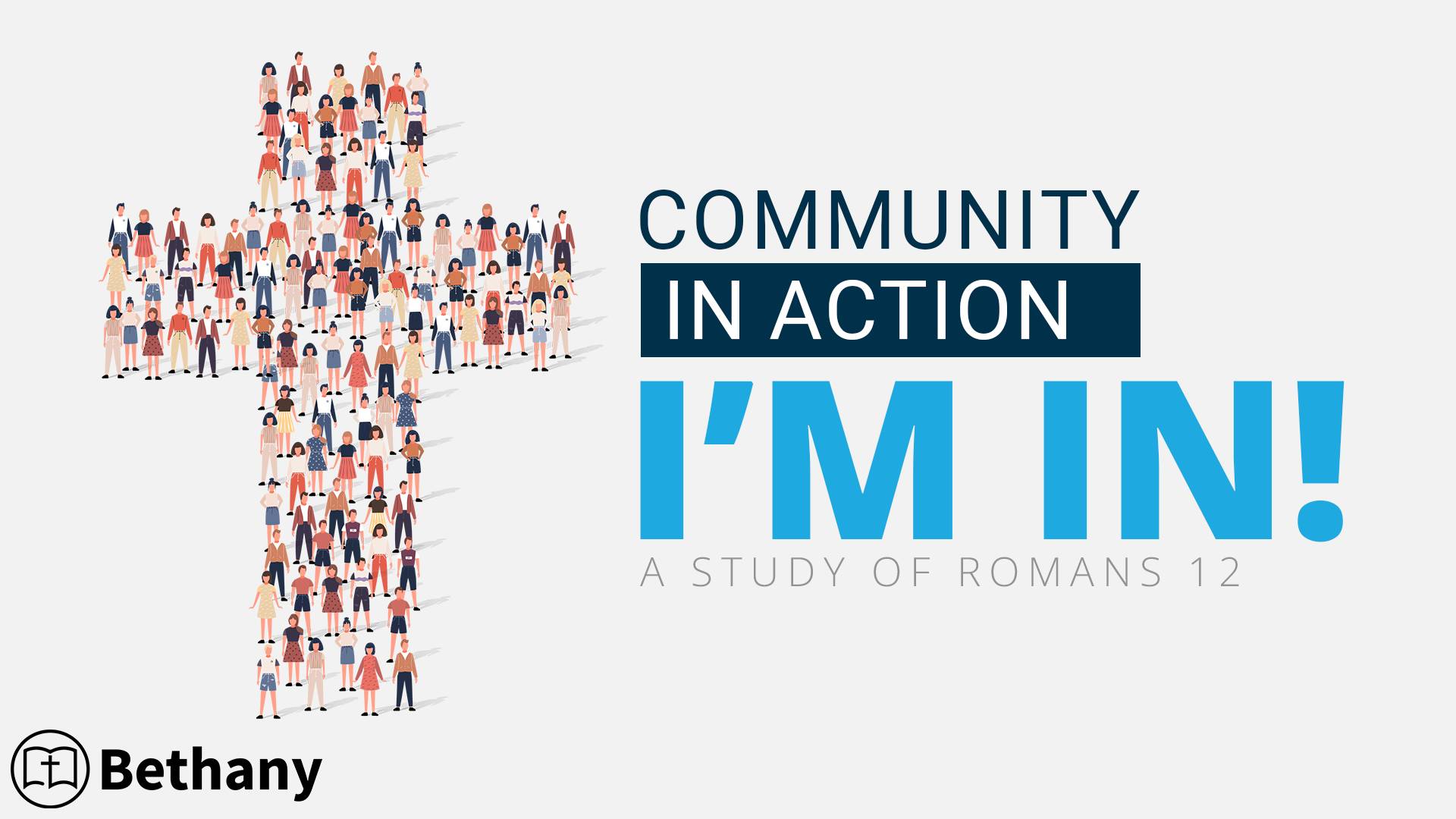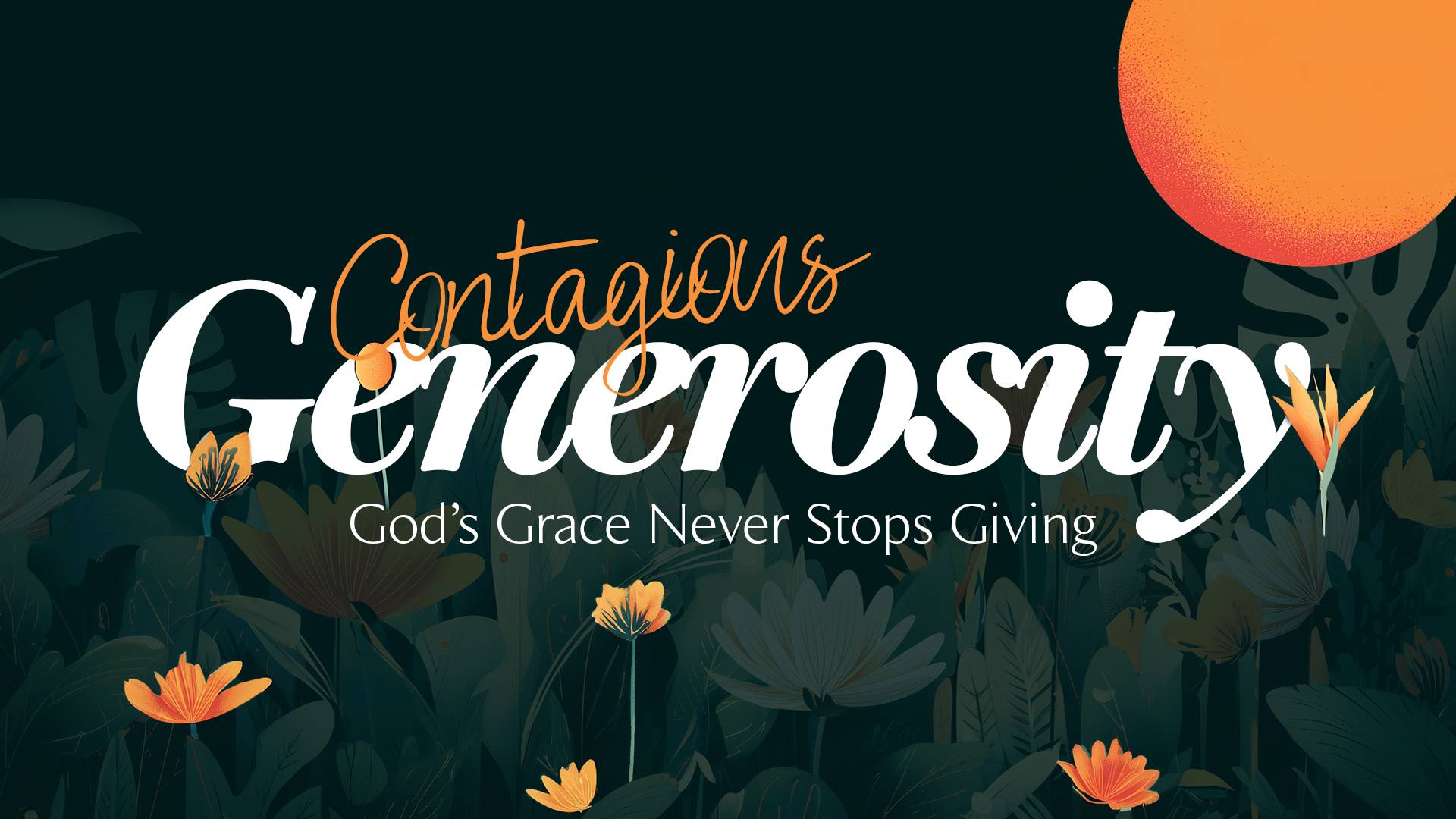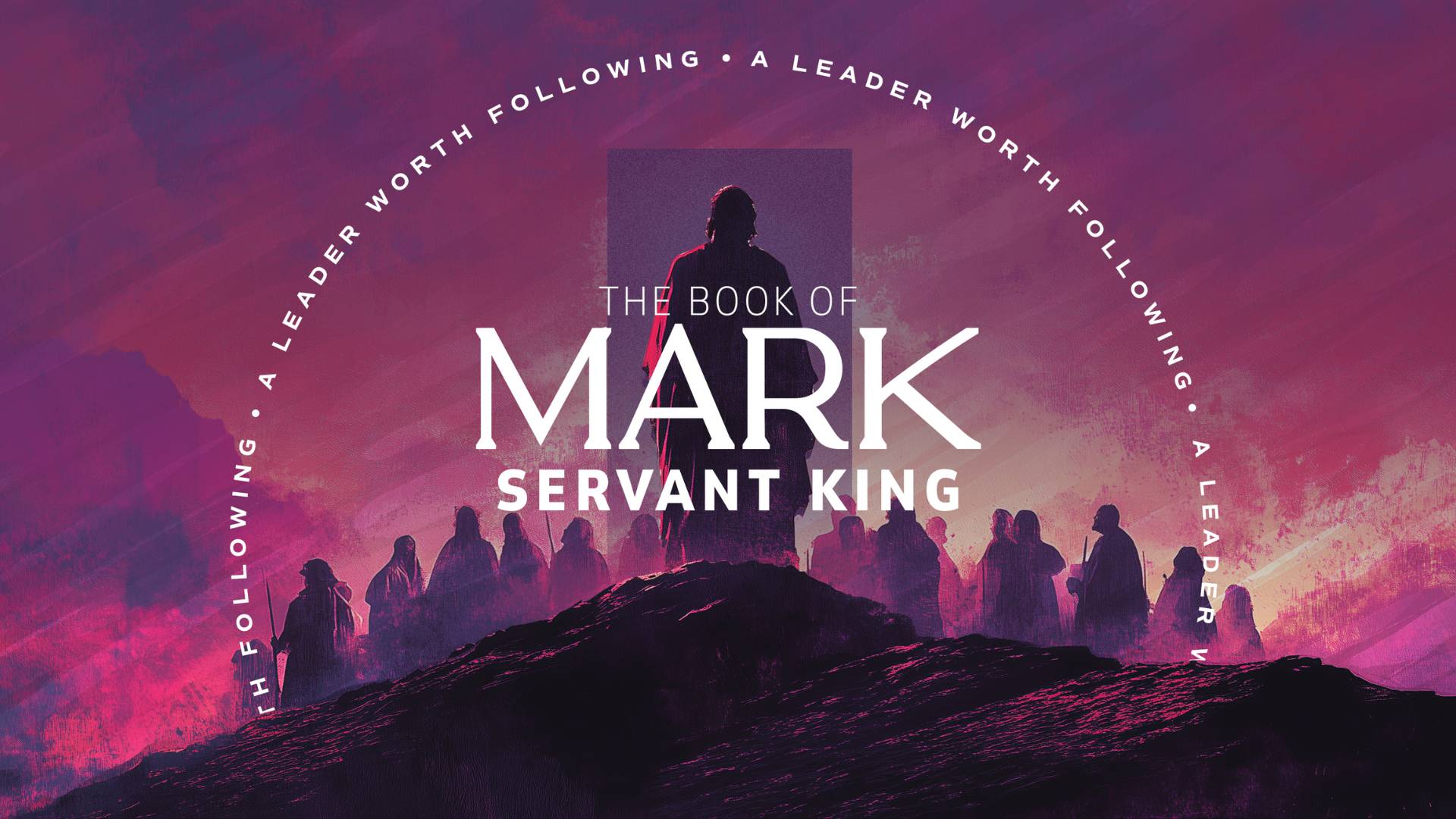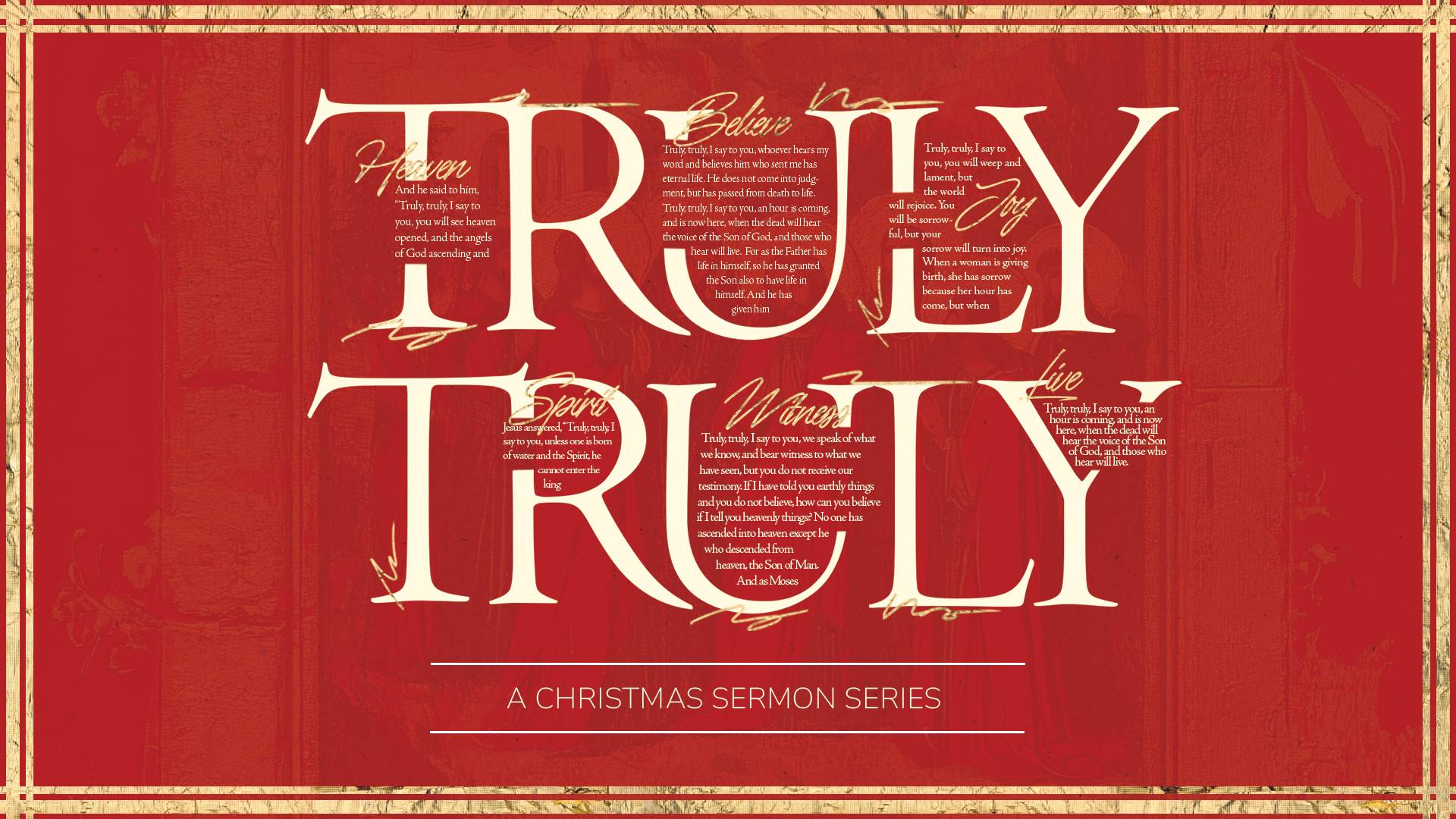In This Series
A Caring Community
Romans 12:12-16 (ESV)
September 4, 2022
Dr Ritch Boerckel
We’re going to be reading from Romans chapter 12 today. We’re in this series on community and we really have been asking whether or not you would consider joining a community group. We believe the church is a community. We believe our culture is fractured. We believe that even much of the Christian culture gets fractured and that the church is a family. We want every person, every follower of Jesus to experience all that the Bible communicates about who we are as a church. So one of the means that we’re encouraging you to use to experience that together and to encourage others in their faith and to be encouraged, is through community groups. So we’re doing this series in Romans 12 to really drive forward that main application. However, there are so many great and precious applications from this passage. I’m going to read Romans 12:1-2 and then I’m going to skip forward to verse 12 and read through verse 16. That’s going to be our focus this morning.
1 I appeal to you therefore, brothers, by the mercies of God, to present your bodies as a living sacrifice, holy and acceptable to God, which is your spiritual worship. 2 Do not be conformed to this world, but be transformed by the renewal of your mind, that by testing you may discern what is the will of God, what is good and acceptable and perfect.
12 Rejoice in hope, be patient in tribulation, be constant in prayer. 13 Contribute to the needs of the saints and seek to show hospitality.
14 Bless those who persecute you; bless and do not curse them. 15 Rejoice with those who rejoice, weep with those who weep. 16 Live in harmony with one another. Do not be haughty, but associate with the lowly. Never be wise in your own sight.
May God encourage us through His Word today!
What good can be accomplished by a church where the members do not deeply love one another? God answers that question for us in 1 Corinthians 13. God says
1 Corinthians 13:1-3 NLT-SE If I could speak all the languages of earth and of angels, but didn’t love others, I would only be a noisy gong or a clanging cymbal. If I had the gift of prophecy, and if I understood all of God’s secret plans and possessed all knowledge, and if I had such faith that I could move mountains, but didn’t love others, I would be nothing. If I gave everything I have to the poor and even sacrificed my body, I could boast about it; but if I didn’t love others, I would have gained nothing.
The more we read our Bibles the more we see love as central to God’s message regarding who He is and who God is making us to be. Jesus told us that the very first and greatest commandment is to love the LORD our God with all our heart, soul, mind and strength. Then the second, He said, is like it. It is to love our neighbor as ourselves. He said that on these two commandments hinge the entire Law and the Prophets. You can sum up everything related to all the commandments that God has given us, all the expectations, standards that God would have for us as people. They’re all summed up in these two great commandments. God floods the pages of His Book with urgings for His people to love one another. Jesus says
John 13:35 By this all people will know that you are my disciples, if you have love for one another.”
The Apostle John says in
1 John 4:7 Beloved, let us love one another, for love is from God, and whoever loves has been born of God and knows God.
Paul says in
1 Corinthians 14:1 Pursue love,
The author of Hebrews says
Hebrews 10:24 And let us consider how to stir up one another to love
The Apostle Peter says
1 Peter 4:8 Above all, keep loving one another earnestly,
John again says
1 John 3:18 Little children, let us not love in word or talk but in deed and in truth.
Paul would even say
1 Timothy 1:5 NAS95 But the goal of our instruction is love
In Thessalonians, Paul prays
1 Thessalonians 3:12 and may the Lord make you increase and abound in love for one another
We can go on and on and on. This theme is just replete all through the pages of the New Testament. Now, keep in view that God is not simply calling us to love people who are easy to love. In fact, Jesus says
Matthew 5:46 For if you love those who love you, what reward do you have? Do not even the tax collectors do the same?
That kind of love is common among man. But He says this is the kind of love that is from above, where
Romans 5:8 but God shows His love toward us in that while we were still sinners, Christ died for us.
While we didn’t have much in us to love, Christ died for us. He loved us so much that He died for us!
How might we, a people who by nature are self-focused and willful, how can we be a people who really care for each other? How can we become a people that represent Jesus to our world? The answer is only through the power of the Gospel.
Romans 5:5 God’s love has been poured into our hearts through the Holy Spirit who has been given to us.
The only way we can love with this kind of love, the love that God calls us to, is that there has been a dynamic transformation inside of our hearts through the Holy Spirit. What happens when we are walking with Christ, when we’re walking with God, is that the Holy Spirit constantly pours the love of God into our hearts and He fills us up with His love so that then we can dispense, we become a conduit. We become a means by which others experience the love of God through us. It’s a supernatural event.
That’s what I think the Apostle Paul is alluding to in Romans 12. Verses 1 and 2 form the foundation of this section from verse 3 all the way to the end of chapter 12 that calls us to a kind of love, a kind of community that is radical. It’s different from anything that the world experiences. It’s different because of its roots, because of its foundation. Here is the foundation that God gives us.
1 I appeal to you therefore, brothers, by the mercies of God,
You are a people who have experienced God’s mercies. You’re a people who have been forgiven by God. You’re a people for whom Christ has died. You’re a people to whom the Holy Spirit has been given and placed to dwell in your hearts.
1 I appeal to you therefore, brothers, by the mercies of God, to present your bodies as a living sacrifice, holy and acceptable to God,
What does it mean to present your bodies as a living sacrifice? What it means is to say, “God, I no longer want to live for myself. I want to live for you.” What does that mean? What chapter 12 of Romans says is that it means that we live to love one another. That’s what He is saying. He is saying the very expression of worship is the expression of our care for one another. It’s an opening of our lives, a sharing of our own lives with one another so that we would represent Jesus and the body of Christ, the family of God, to a world that doesn’t know anything of true love. The world only knows brokenness. But there can be a wholeness that the church demonstrates by the power of the Gospel. It’s a people saying we are going to set our hearts upon presenting our bodies to God every day as a living sacrifice. “It’s not my agenda, God. It’s your agenda that I want to follow.” God says “My agenda is that you would love one another.”
The main idea is that love in community communicates the authenticity of the Gospel. It communicates that it’s real. It’s genuine. It’s not fake. It’s not phony. It’s not superficial. The Gospel is real and our love for one another communicates the Gospel to the church because we are a people who still have a conflict with doubt and unbelief. We need to see the reality of the Gospel. We need to communicate the reality of the Gospel to one another by the way we love each other, but also to a world that is walking in darkness without the life of God.
We open up our Bibles today to Romans 12. Our focus is on verses 12-16. These verses are really practical. They help us take specific action so that we can influence the quotient of love, the amount of love flowing within our church family. Pastor Josh taught us five specific ways in which God calls for love and our expression of love to create Christian community. We’re going to look at seven more this morning.
In verses 9-21, if you count up the number of commands, you’re going to find at least twenty-nine commands. They are like a rapid machine-gun fire of commands. Boom, boom, boom, boom, boom! There is command after command after command. I want us to stop before we look at the commands, to think about why God gives us commands in Scripture. Why would He give twenty-nine commands, almost overwhelming us as we read these verses? Why would God give commands to a people who are already redeemed?
For us as redeemed people, God’s commands, John says, are not burdensome. Rather, God’s commands are blessings? They’re not like, “Oh, I really don’t want to do that, but God commands us, so I guess I have to.” That’s not why God gives commands. It’s not to create greater and greater obligations. A follower of Jesus is a person who has already chosen the path that he or she believes will lead to life. We know that path to be Jesus. It’s the narrow path. Few are those who find it. Broad is the path that leads to destruction. The majority of the world is not walking on this path. But we who are followers of Jesus have said I’m going to follow this path and it’s the path that leads to life. I’m going to walk on it. It’s not a path that I just decide to get on and then that’s it. It’s a path that I walk on every day. I want to walk on that path because I know it’s a path that actually leads to a good place. It’s the only path that leads to a good place. So I really want to be on that path. With that in view, think of God’s commands this way. I’ll use an illustration.
I’m not a great outdoorsman. I still love going out with outdoorsman people and experiencing the outdoors, but I’m not a great outdoorsman. I certainly wasn’t when I was a 24 years old youth pastor. There was an outdoorsman in our church. He said what we ought to do is we ought to go out to the Ouachita Mountains in Arkansas and take our junior high class. We’re going to go on the trail and spend three nights there. We’re going to camp with tents and we’re going to cook food over the fire. I said, Great! I’m with you. I don’t know anything about it. I’m trusting you to know everything about it. I don’t know anything about it, but we’re going to go. I’m all excited about it because I kind of like the allure of the outdoors.
So we get to the place. We were realizing that the sun is already setting. It’s really important to get to the camp place where we’re going to stay the night. That camp place is about an hour and a half into the forest. The guy says, “I’ll just take a few of us because we have to get there faster. I’ll set up the camp. Then you’ll take the majority of the kids. I’ll get there and set up the camp and then you’ll arrive about an hour later.” Okay, sure. We’ll do that. I’m gathering up the kids. He said, “Don’t worry. Look at this tree over here. Do you see this mark on the tree? That means that you’re on the path that leads to the place where we’re going to stay the night.” There were other trees marked in different ways and that lead to other places, but there was one specific marking that meant you’re on the path that you want to be on. Great! It sounds simple.
So we start down the path. I see the first marker. Yes! I’m on the path. We walked and these markers are not like every ten feet. (Laughter!) It’s not as though you don’t have some option between the markers. So I would say, I think I’m on the right path. Then I would see a marker. Every time I would see a marker, then I would know we’re on the path. But there were a few places where I thought we must have gotten off the path. I don’t know what to do. I thought we’re just going to spend the night underneath some tree now, with no campfire. I don’t know how to make a campfire out here. We have no tents. So we would walk along and I would just walk in faith. It was starting to get dark, so I would have my flashlight and I was looking. Then I would see a marker. Yes! We’re on the path. Every time I saw one of those markers, I acted really cool with the kids. I know what I’m doing. Don’t worry about it. (Laughter!) But inside, I am terrified that I’m going to lead these kids into the middle of nowhere. That day, we don’t have cell phones or anything. We were just going to be lost. Every time I saw a marker, my heart rejoiced.
Why does God give us commands? To a person who says this is the path I want to walk on. I know it’s going to end in a really good place. At the end of my life, it’s going to end in great joy. I want to stay on this path. What God does is He places these markers, these commands to say, you’re on the path. Here is the path. That’s why for a believer, God’s commandments are never burdensome. They’re not like, “Oh, I have to follow this command again. I wish I didn’t have to do that. I wish God didn’t command that.” No, we know the path is the path that leads to life. So when we see every one of these commands we grab onto it and our heart rejoices.
Did you catch that? So they’re here to help us to know we’re on the path. So there are 29 markers that say, you want to be on the path of love, receiving the love of God and being a means by which God gives love to other people, where you make a difference for all of eternity because you’re walking this path of love. He says let me tell you some very specific markers. Every time we see a marker, we stop and we rejoice and say, God, I want to follow this. I want to obey this because I know this is the path of blessing. So there are seven more ways in which love creates Christian community.
1. Joy: Love sees a future day.
12 Rejoice in hope,
Paul often uses the word “hope” to refer to that future day when God completes His work of grace in us. We become like Jesus. We see Jesus and we become like Him, for we see Him as He is. What hope is in the Bible is this certain eager expectation and anticipation of a future day when God completes this work of grace in us. It’s not just in us as individuals, but us as a church family, as a community. What a day that will be! How different we will be both individually but also as a community when we are perfected by His power. Love rejoices in hope.
On that future day, not one of God’s children will be selfish or sinful. We will not be contentious or crusty. We will not blame or berate one another. We will not gossip nor slander. How will our future perfection affect this community at Bethany today? The community that God is now creating, this small community represented right here in Central Illinois, this community will be whole. That means we will never be broken by any conflicts amongst one another. We will never be overcome by anger towards one another. We will never be weighed down by unmet expectations or by failed promises. Our community, forever and ever will experience Shalom. It’s a kind of peace, a kind of fellowship that satisfies our deepest longing for community. It satisfies our deepest desire for belonging. Friends, God is working today toward that end in this. He says as you think about one another, I want you to rejoice in hope for yourself and in hope for the community in which you are a part.
By way of application, I would urge you to think of some brother or sister in Christ whom you have difficulty loving. Perhaps they have hurt you through harsh words. Perhaps they have disappointed you through a broken promise. Perhaps they did not meet some important expectation. Perhaps it’s just their personality. Now as you think of that person, think of that person on the day when they stand before Jesus and you stand with them. Jesus presents you both faultless before the Father because the work of the cross is that sufficient. The power of the cross does that. On that day you both become perfected in thought and word and deeds. Whatever wrongs that person committed against you, that person will see them more fully and confess them more thoroughly and be transformed more fully than you’ve ever thought possible. Whatever wrongs you have committed against that person you will see and you will mourn and you will confess and you will be transformed, too. On that day, nothing will stand between you both from what God has for you and your relationship. It will be that way from that point on and throughout all eternity. In fact, and this is hard to imagine, but on that day, you will love that person more than you love the dearest on earth right now because your love will be perfected. Think about that. Also think about this. That person will love you more than they love right now, the dearest on earth to them. Rejoice in hope.
Biblical hope allows us to enjoy a slice of that future joy right now. That’s what hope does. It reaches out into the future. It says, “I know it’s so certain. I’m going to grab some of that.” It’s just like when we have a Thanksgiving meal. People have labored to cook the turkey and the dressing and everything. Even before you take a taste, you can smell the aroma. You haven’t even taken one bite yet, but you’re already enjoying it because it’s certain. It’s right there. You’re going to have a short prayer and then you’re going to eat. (Laughter!) You’re enjoying it right now even though it’s yet future. That’s what hope does. It puts our hearts into the hope of what God has for us. Hope allows us to see the fellowship of heaven as though it has already happened, because it will happen. That’s certain.
Hope causes us to ask, “If harmony and fellowship is my future, what keeps me from enjoying some of that goodness right now?” Oftentimes the answer is that it’s my lack of faith. It’s my lack of hope. That’s why God says to rejoice in hope. By rejoicing in hope frustrations are robbed of their force. Bitterness is dislodged from our heart and we see a picture that causes us to move forward toward one another in love. Joy is seeing the future.
2. Patience: Love endures hard things.
be patient in tribulation,
I remember once being at a dinner table with a family after they had entered a terrible trial. It was a terrible, weighty kind of trial. It was a crushing trial. The dad wisely looked at his children and his wife and with tears in his eyes he said, “I know that many times when a family goes through this kind of suffering it causes the family to break apart. I don’t want that to happen to us!” We were able to talk about the love of God and we were able to talk about the love that God provides for us that endures hard things. It is patient in the midst of tribulation. We talked about how temptations are undoubtedly going to come as a result of this kind of suffering. But through Jesus, we can be assured that God will hold us fast to Him and to one another.
Tribulation of various kinds often brings out the very worst in people. Tribulation places strain on relationships, even on relationships that once were strong. Most of us have experienced that over the last two years. You likely have relationships that have been broken or at least severely strained as a result of the tribulation of the covid pandemic and its response. You likely have people in your life who until March of 2020, had been warm and sweet and peaceable. But in these last two years they have expressed anger, rejection, unkind words, separation and hostility. What are we to do when tribulation brings out the worst in others and often in ourselves? Here Paul says love is patient in tribulation. We look to God and say, God, I need your love in my heart and I need your love flowing through me. I want to be patient, Lord. I want to be an expression of Jesus to my community.
In community groups, if you join them, and I really urge you to, there are all kinds of tribulations that might disrupt your peace within that group. It’s true that there are risks. Sometimes members can’t attend for long stretches due to personal trials. That’s a strain, a tribulation on relationships. Sometimes there are going to be theological disagreements. Sometimes you’re going to sense your feelings are being ignored. Sometimes there is even going to be wrong suffered, whether through word or deed. Sometimes there are going to be selfish members who are part of community groups. All of these things are tribulations. When our brothers and sisters respond selfishly in a time of tribulation, what does love do? It causes us to reach out in patient love. Paul says be patient in tribulation.
3. Intercession: Love prays for one another.
be constant in prayer.
Be devoted to prayer. Genuine love prays for one another. Instead of criticizing or gossiping or slandering or worrying, genuine love prays. Genuine love prays even more than well-wishing. It’s more than saying, “I wish you well. I hope everything turns out for you.” Genuine love gets on our knees and we reach out to God and we say “God, you’re the only access. I know you hear our prayer because you heard my first prayer when I prayed, ‘Lord, be merciful to me, a sinner.’ You heard that prayer. From that moment on, you promised to hear every prayer that I pray. You’re the God who spoke and the worlds came into existence. You’re the God who is able to do anything exceedingly abundantly beyond all that we ask. So here are my brothers and sisters. The greatest expression of love I have for them is to ask you to bless them. Attend to their needs. Help them. Strengthen them. Give them grace in time of need.”
I know through intercession, we see the example of Jesus in His intercession for us. He constantly lives, ever lives to make intercession for us. He prayed for Peter.
Luke 22:31-32 “Simon, Simon, behold, Satan demanded to have you, that he might sift you like wheat, but I have prayed for you that your faith may not fail.
“It’s my confidence that the Father hears my prayers. Peter, you’re not going to fail in this trial because I’ve prayed for you and I have confidence that God is going to give you strength and bring you through.”
Again, I think community groups are such a precious means for us to be devoted to prayer. Oftentimes as we think about people, you look around you and there are some folks you know and some folks you don’t know. If we would just simply say, “pray for one another right now,” you would ask for sort of a generic blessing because we don’t know. We don’t know the intricacies of each other’s lives, the hurts, the difficulties, the trials, the things in front of them. What a community group does is it says we’re going to talk about these things. We’re going to talk about them every week. We’re going to talk about real stuff so we can pray real prayers and we can see God really act. Isn’t that exciting? He says to commit yourselves to love each other by praying for each other. Know each other well enough so that you’re informed about what to petition the Lord over. Be constant in prayer.
4. Generosity: Love meets others’ needs.
13 Contribute to the needs of the saints
The needs of the saints are sometimes evident and obvious and sometimes they are hidden. Some needs are physical. Others are emotional and relational and spiritual. God’s simple command here is to contribute. We rarely have access to do something to completely relieve the needs of others. He doesn’t say to relieve the needs of others. He says to contribute. So because God has placed you and me in one another’s lives, we each have a part to contribute wherever we see a need in each other’s lives. We say I don’t want to leave this relationship without contributing something helpful. I don’t want to leave without contributing something valuable.
Again, in a community group, you’re going to discover physical needs. Sometimes those needs are that a person needs a roof put on their house. Sometimes the needs are because of sickness. There is a handicapped ramp that needs to be built. There are all kinds of physical needs. Sometimes and I think it’s even more profound and more often, there are emotional needs. There are spiritual needs that we have. All of us have them. Everybody has needs.
If you look around and if you ask a person, “What needs do you have?” a lot of us are going to say, “I don’t really have any needs,” but that’s because we’re not really that honest. We all have needs, every one of us. There is something in our heart that we wish we would experience that we’re not. There is some hurt. There is some challenge. Sometimes that challenge is small because we’re going through a great season. Sometimes it’s huge. Even when it’s huge, sometimes we don’t share.
But the focus here is to be generous. It’s to look and to seek to have that kind of relationship. That takes time because it’s likely that if you had just talked to a person for the first time, and I’m going to encourage you to do that at the end of the service, and you say, “What are some of your needs?” they don’t know how much can I trust or how much you’re really interested. Love requires us to take the time to simply say I want to be in relationship. I want to know you. I want to help you. I want to be an encouragement to you. I understand why that’s going to take some time for you to sense a freedom to begin to unfold and unravel some of your life. Again, this is where a community group can be such a big help. It provides that time. It provides that kind of frequency. It provides that kind of knowledge. Once again, the call is for us to simply contribute.
5. Friendship: Love opens one’s life to others.
seek to show hospitality.
As you think about hospitality, I want to sort of flip the script a little bit on you. So often we think of hospitality as inviting people over for a meal. That certainly can be an expression of hospitality, but I want you to know that hospitality is more about an open life than it is an open home. Hospitality really is a sharing of your life with another person. It’s the giving of yourself to another person. Hospitality does not meet the need of food and shelter so much as it meets the need of real relationship. That’s hospitality. Oftentimes, meeting the need of food and shelter is part of hospitality. But the core of it is meeting the need of real relationship.
Think of that story in Luke 10. Mary and Martha have Jesus over to the house. Do you remember how Martha is busy, busy, busy, getting the food going? Mary comes in and just sits down at Jesus’ feet. Martha was the one that actually made the invitation, as the story goes. Mary is there just sitting at the feet of Jesus. Martha is getting frustrated. Jesus says, “Martha, Mary is doing the necessary thing.” We ask who is showing hospitality in that story? Is it Mary or Martha? What the story leads us to is that it’s really Mary that is showing hospitality and Martha is really not. She is working hard. She is providing food, but she is not showing hospitality. We can even back away in the story and ask who is showing hospitality even more? We can say it’s Jesus. Jesus isn’t providing any food. He’s not providing the house. Yet He is opening up His life. He is offering Himself and He is showing hospitality even as a guest.
Another story I think about is Zacchaeus. This is kind of a hard story to understand at first, as long as we have this idea that hospitality is opening up our home and giving food. It seems really rude that Jesus would point up at Zacchaeus and say, “Zacchaeus, I’m going to your house today.” Isn’t it rude to invite yourself over? Well first, He knows that Zacchaeus is looking from that tree because he wants relationship with Jesus. He wants to know more about Jesus. Jesus is actually showing hospitality because the Son of Man is like the foxes who have no holes to bed up in. He’s like the birds who have no place to rest. He says, “I’m the Son of Man. I don’t even have a place.” But Jesus’ whole life was about hospitality and He never invited anybody over to His house. But when He came, He came with His full Person to offer Himself.
I think of a third story. Do you remember Simon, the Pharisee who had everybody important over? Jesus was a dinner guest and there was this woman who was a sinner and who had been changed by Jesus. She broke out an alabaster jar of perfume and anointed His feet and cleansed His feet with her tears. Remember that they were whispering and said that if Jesus knew who was touching Him, He wouldn’t let her touch Him. Then Jesus rebukes them. Who is showing hospitality in that story? Again, it’s not Simon the Pharisee who put on an incredible spread. It’s this woman and it’s Jesus who is showing hospitality in that story.
Again, I don’t want to disparage putting on a great spread because if you put on a great spread and you love doing that, invite me over. (Laughter!) Everybody enjoys that. It’s not wrong. But I just want us to know that it’s not that central. It’s not the important thing. If Kimberly and I together invite folks over, which we thank the Lord we are able to do, Kimberly will cook a brisket. She’ll have all the fixings and then she’ll ask you to line up often in the kitchen and put food on your plate. Then we’ll go over to the table. That’s the way that we do it. It’s a little bit more relaxed than many. We don’t put out all the specific cups and napkins that some folks do. Nothing is wrong with either one. If I were the one inviting you, you’d come over and you’d see on the table a jar of peanut butter and a jar of jelly. (Laughter!) Here is some bread. What I’m saying is that neither of those are wrong.
What showing hospitality means is we open up our lives to one another. That’s what happens with hospitality. That’s what drives love and this kind of friendship. Love opens one’s life to others. A community group is a means by which we share life with each other. I know that sharing life can be exhausting. It can be vulnerable. It can be costly. To open one’s life to others requires much more from us than opening up our home. To let our guard down in front of others is risky. I can’t promise you that you won’t get bruised because of it. I believe you will if you show hospitality. That’s part of the risk. Did Jesus ever get bruised when He showed hospitality and when He opened up Himself? Yes. We will too. What I’m saying is God says this is the path upon which there is life. It’s the path in which my kingdom is built.
6. Empathy: Love feels with others.
15 Rejoice with those who rejoice, weep with those who weep.
We never run out of the opportunity to do both. Again, I would encourage you to look around you today as you’re outside and we’re able to spread out a little bit more. If you spend ten minutes after the service to talk with people sitting near you and if they really opened their hearts to you about what was happening in their lives, you would discover that some of the people sitting very near you are rejoicing in the good hand of the Lord upon their lives. This is such a sweet season. It’s a sweet time in their life. There are so many blessings. You would also discover that some of those people are weeping from hard trials that God has ordained for them. We never run out of opportunity to rejoice with those who rejoice or to weep with those who weep. Both are uncommon.
To rejoice with those who rejoice requires much selflessness. It is to rejoice with those who win the game while we are the ones who lost the game. It is to rejoice in the birth of a baby when we’re struggling with infertility. It is to rejoice with the co-worker who receives the promotion that we believed was ours. It is to rejoice with the parents of the student who makes it into medical school when our son or daughter has been turned away or is failing. To weep with those who weep requires empathy. It requires hours of our time and energy. It is not fun. To weep with others is to invite an emotion that by nature we push from our lives. Yet this is what love does. It comes alongside one another and it feels with one another. Some say love is not a feeling. I know it’s not just a feeling, but love is not less than a feeling. It’s a feeling that weeps with those who weep and that rejoices with those who rejoice.
7. Humility: Love thinks about others.
16 Live in harmony with one another. Do not be haughty, but associate with the lowly. Never be wise in your own sight.
I like that word “harmony.” Live in harmony. To live in harmony doesn’t mean that we’re singing the exact some notes. We are all different with varieties of personality and emotions and talents and backgrounds and ways of seeing. But to live in harmony means that we are tuned into each other and we’re tuned into the Master of our choir. Our leader is Jesus Christ Himself, who sets the tune. He sets the song. We’re singing Christ’s tune together. The great Choirmaster chooses the song for us and each of us possesses a different part, but we’re singing together. At the end of Romans 15, Paul says this by way of a prayer. I think he is taking this prayer from this little verse of living in harmony with one another.
Romans 15:5-6 May the God of endurance and encouragement grant you to live in such harmony with one another, in accord with Christ Jesus, that together you may with one voice glorify the God and Father of our Lord Jesus Christ.
The whole purpose is upward. Without this kind of harmony, the song we sing is discordant to the world. It’s a cacophony. It’s a sound that is not pleasant. We have this amazing message, the message of the Gospel. So the way we live matters in reference to the communication of the Gospel. So he says to live in harmony with each other. This requires humility. Love in community communicates the authenticity of the Gospel.
I close with a couple questions. First, I want to ask you, do you know how much God loves you? Have you experienced the love of God in your heart and in your soul?
Romans 5:8 but God shows his love for us in that while we were still sinners, Christ died for us.
He died so that we could be forgiven of our sins. He died to pay the penalty that we deserve to pay as punishment for our sins. Jesus loves you so much that He died in your place. Do you know how much God loves you? Have you received God’s love in Jesus Christ for yourself? I believe God loves everyone in the world, but not everyone in the world receives the benefit of God’s love. You must humble yourself before God in order to receive any of the benefit of God’s saving love. You must come before Him as a sinner in need of mercy and call out and say, “God, I’ve sinned against you. I turn from my sin and I turn toward Christ, who is the Savior. I want Him to by my Savior. He is the Lord and I want Him to be my Lord.” That kind of faith response is what it means to experience the love of God. I would urge you that if you don’t know whether God loves you, if you’ve never experienced God’s love for you, look to Jesus. Look to Him in faith. God promises that when you look to Him, you will live. You will be made new. That’s what God does.
Then for those of you who are in Christ, if you have received the love of God, I would ask you, are you letting your Father’s love flow through you? Is your church family strengthened in love as a result of your presence? In following Jesus together, it means that every person is so vital in helping us as a family express the love of God together with one another in worship to our great God who is worthy. So as you look around this morning, first I’m going to ask as you take communion, to consider one another. Consider how you might enter into the needs and into the opportunities you have with one another just on a Sunday morning basis. I also want to ask you to consider being part of something that is deeper, that is stronger, a community group where you’re investing more of your energy and your time.
One of the things these commands teach us is that it does require intentionality. That’s why they’re commands. It requires energy. It requires an investment of our lives in order to really love. It doesn’t just happen naturally. That’s why there are twenty-nine commands. Here are all the investments we can make. Each one is that sign marker on that path where we can say, “Yes, thank you for that sign marker because it helps me know where the path is so that I can walk on it and receive the joy of eternal goodness. In every one of these, as I think of them, I think of Jesus. In each one of these, we see Jesus’ perfect love being demonstrated to us. We’re just simply called to be Jesus and to model Jesus to one another for the glory of God.
Latest Sermon Series
Get the App
Watch the Latest Sermon
Get access to each week's sermon right on your phone. Look up sermons & series.Get the Digital Bulletin
Get the latest updates, events, & family news by checking out the digital bulletin.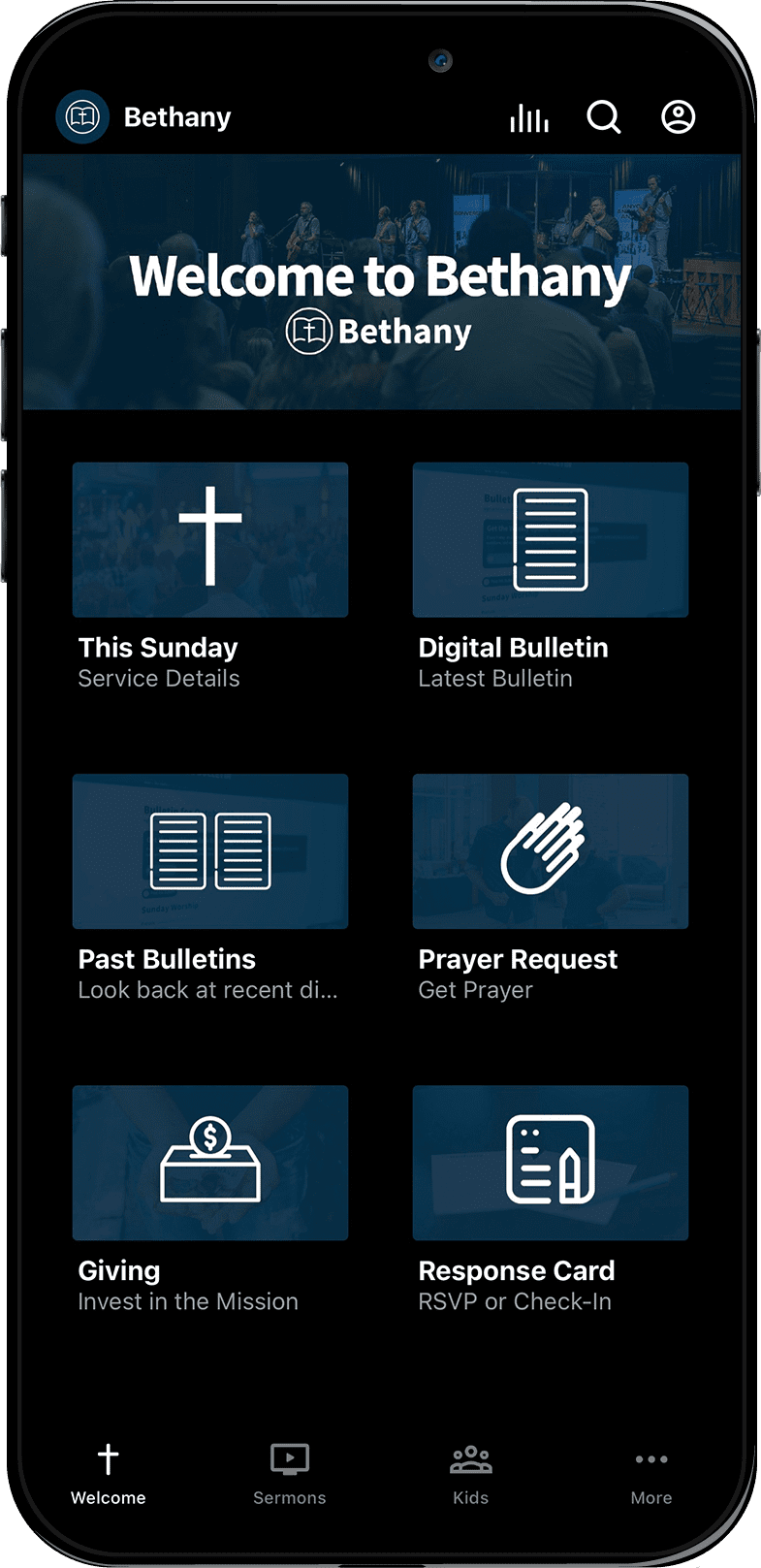

- 1Watch the Latest Sermons
- 2Get the Digital Bulletin
- 3Tell us how to pray for you
- 4Get updates and notifications
